“Theorizing that one could time travel within his own lifetime, Dr. Sam Beckett stepped into the Quantum Leap accelerator and vanished… He woke to find himself trapped in the past, facing mirror images that were not his own, and driven by an unknown force to change history for the better. His only guide on this journey is Al, an observer from his own time, who appears in the form of a hologram that only Sam can see and hear. And so Dr. Beckett finds himself leaping from life to life, striving to put right what once went wrong, and hoping each time that his next leap will be the leap home…”
The premise of Quantum Leap was succinctly and empathetically explained by a voice that spoke to viewers week to week, setting the scene at the opening of the episode. It is a voice that left an indelible print on the show, from its inception to its finale. This is the voice of its Head Writer. No, not Donald P. Bellisario, but a woman of color who was leaps ahead of her time – co-executive producer and uncredited co-creator, Deborah M. Pratt.
Deborah wrote or co-wrote 40 episodes of this sci-fi gem and her authorship of the show runs deep through its five seasons. Aside from the opening narration, Deborah is audible as the voice of Admiral Al Calavicci’s pocket computer, Ziggy. She also guest stars in the episode ‘A Portrait for Troian – February 7, 1971’ (S2, Ep11) as a grieving widow who hears the voice of her husband calling her.
Deeper still, Quantum Leap was a family affair. It was co-created with her husband at the time, Bellisario, and their daughter, also named Troian, appears as a little girl in ‘Another Mother – September 30, 1981’ (S2, Ep13), who can not only see Al, but also sees Sam as he really is, rather than as her recently divorced mom.
Prior to helming Quantum Leap, Deborah rose through the ranks as an actress, gracing the screen in Happy Days, CHiPS, The Dean Martin Show, and many more, and was also a writer on shows such as Airwolf and Magnum P.I. She is a five-time Emmy nominee, Golden Globe nominee and winner of countless other awards. She went on to produce CBS comedy cop show, Tequila and Bonetti, in 1992, and then in 1998 to co-create and produce the TV series adaptation of Sandra Bullock tech thriller, The Net (1995). But Quantum Leap was Deborah’s brainchild – one which is emblazoned on the hearts of its faithful fans.
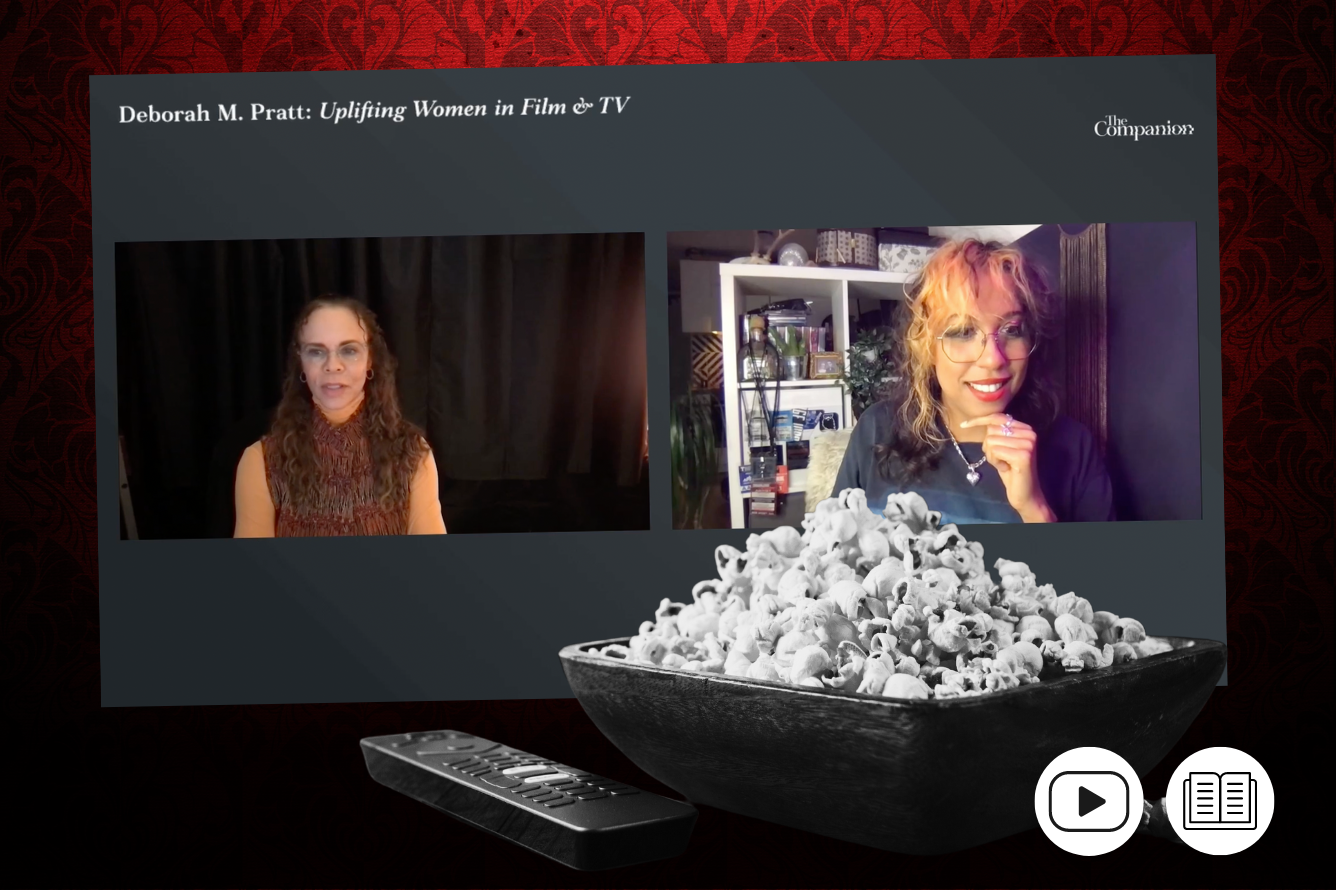
Deborah has also moved into directing, including on the hit show Grey’s Anatomy (2020), and has since played a crucial role in bringing Quantum Leap back to our screens for a new series in 2022, but was generous with her time when spoke in late 2020 to leap back into the past.
It does seem that you were really ahead of your time as a female head writer and a showrunner in the ’90s, especially in science fiction TV. Was it hard for you to progress and to get Quantum Leap made?
“Usually women were relegated to comedy, very rarely was it drama or heavy drama. It’s changed, finally, with people like Shonda Rhimes [Grey’s Anatomy, Bridgerton, Scandal]. But yes, I was a true pioneer, even though I don’t have a ‘created by’ credit, it was a ‘co-created by’ show – with Don. I brought him the original concept, and we were married, and he said ‘Let me just run with this. I can get it made.’ And to his credit, he understands how to tell a story to the audience. He simplified it in a way that you could welcome Quantum Leap into the world. But it was still a tough show to sell.
“I think we went back three times to pitch it to the network. It was complicated to explain. Brandon Tartikoff [the executive] said ‘It’s a great idea – It’s like nothing I’ve ever seen on TV. Let me think about it.’ Then he asked us to come back, ‘I want you to pitch it to me like I’m six years old, then pitch it to me like I’m 80 years old’ and finally he took it. Then even after the show first aired, they decided to introduce that opening where I tell the story. That was created to explain every week to a new viewer what was going on and it worked really well.”
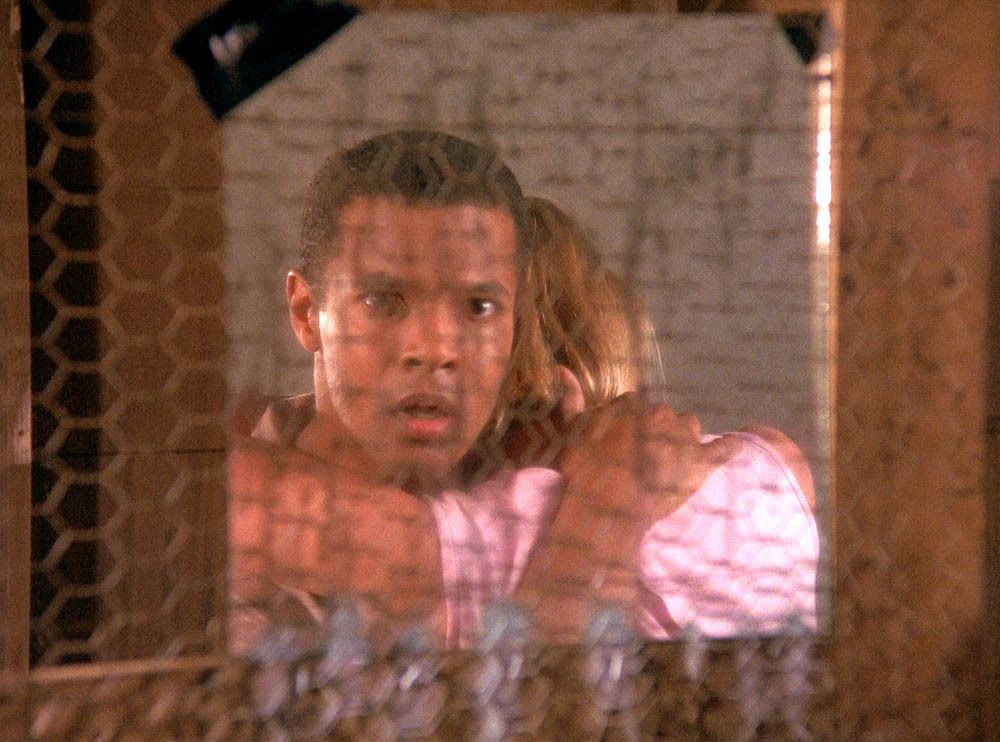
On rewatch now, the best part of three decades later, the show feels groundbreaking in terms of the subjects you cover. Did you feel like you were pushing the envelope?
“I feel we got to do so much on that show. I remember when I did ‘Black on White on Fire’ [S3, Ep7], the networks in the South in the United States wouldn’t air it because it was a black/white relationship. Even though there is no scene where you see a black person and a white person being intimate.
You saw Sam, who was white, and the girl who was white, but because he was playing someone who was black, it was an issue. They wouldn’t air the show in the South. This was around 1992. It was challenging for sure. I think we pushed the limits.
“The beauty of the show too, was that it was about hope, which I see so little of on television today. Everything’s so dark, so mean, so vicious, bloody – how many people can you kill? How mean can you make your lead characters and antiheroes. I think it’s why I didn’t work as much afterward. A) I was a woman and B) a black woman. There weren’t any black female executive producers that I knew of in drama. I got to do The Net because it had a female lead, but that was almost ten years after Quantum Leap was created. Any show I brought in that had a black lead was never bought, or a female lead, was never bought.
“I remember I wrote a big action piece – like an Indiana Jones, but female-driven, feature film – and pitched it and the studio executive said, ‘Yeah, yeah, but when did the guy come and rescue her?’ And I said, ‘She doesn’t – she rescues him.’ The look on his face. I’ll never forget it as long as I live.”
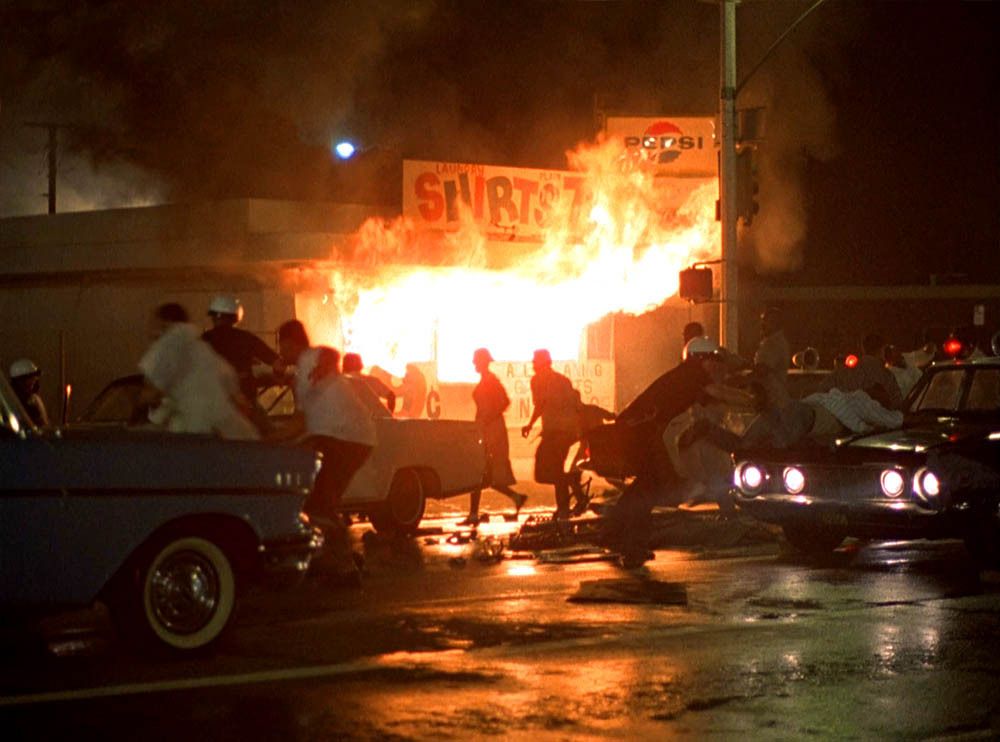
The show darted around TV schedules, but the fans remained with it, and still to this day hold it dear to their hearts. Was that palpable at the time, or has that grown since?
“I think near the end of the first season, Harriet Margulies [production assistant on the show] found a chat room after an episode where people from across the country talked about it and it became the ‘watercooler.’ We were the first television show that had a chat room as a water cooler. Before that, it was literally you going into your office and standing around the water cooler and talking about movies or TV shows you were watching. Suddenly, it was online. So we started to go into the chat room and talk to people about what they liked and what they didn’t. Not necessarily telling them who we were, but that fan base is what kept us on the air because the network didn’t know what to do with us. There was no show like it, so they couldn’t pair us with anybody.
“In the five years we were on, I think they moved the show six times and the fans still found it, they followed it, they watched it. That’s how we knew we had something unique and special. To this day, I’ll go into a meeting with a young executive who’ll go, ‘I have to tell you, I loved Quantum Leap. I used to watch it with my mom and dad’.”
Scott Bakula was such a great hero and heartthrob as Dr. Sam. What was he like to work with?
“He was so approachable, you know, in the sense that he had this great, easy acting style. He took chances and he was likable – in a way that he could be a man’s man and a woman’s man at the same time. He’s really a brilliant actor. I am saddened by the fact that he has not had the opportunity to do movies in a way that could really have lifted his career. He’s had an incredibly successful television career. He’s a good actor. He’s a kind man. I’ve always admired him and felt like when we were working together, I had a friend that I loved to write for because he was always so giving and willing and wanting to take chances as an actor. So it was fun to go down to the trailer and say, ‘Guess what? You’re going to be pregnant this week [‘8 1/2 Months – November 15, 1955’ (S3, Ep12)]’.”
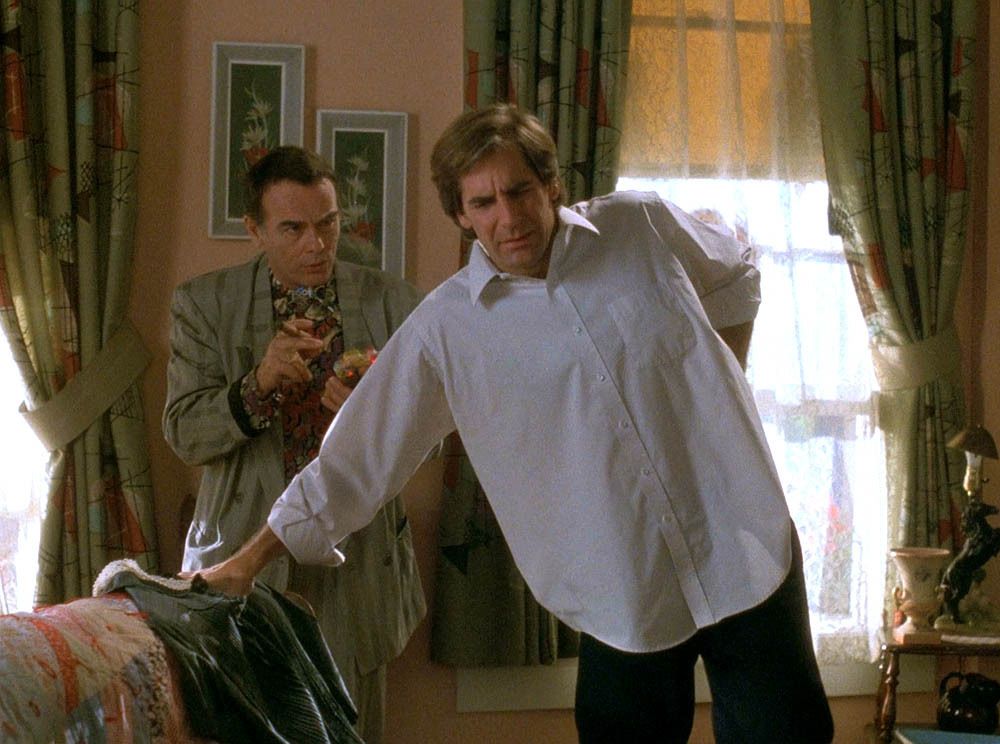
He does everything in the show from singing and dancing to baseball, and football, and hopping over car bonnets to fights and martial arts. Did you know he had such a wide skill set from the outset, or did you write the challenges for him to rise to?
“I think we had conversations with him about that. I also knew that he had been on Broadway doing musicals. I knew he could sing and dance. When I wrote ‘Sea Bride’ [S2, Ep20], I wrote a tango number – that was unique for him. When Don knew that he could play the guitar… We asked Scott, ‘What do you want to do?’ And he said he wanted to do a musical and I think that’s how the ‘Catch a Falling Star’ [S2, Ep10] episode came about, which involves a performance of ‘Man of LaMancha’.”
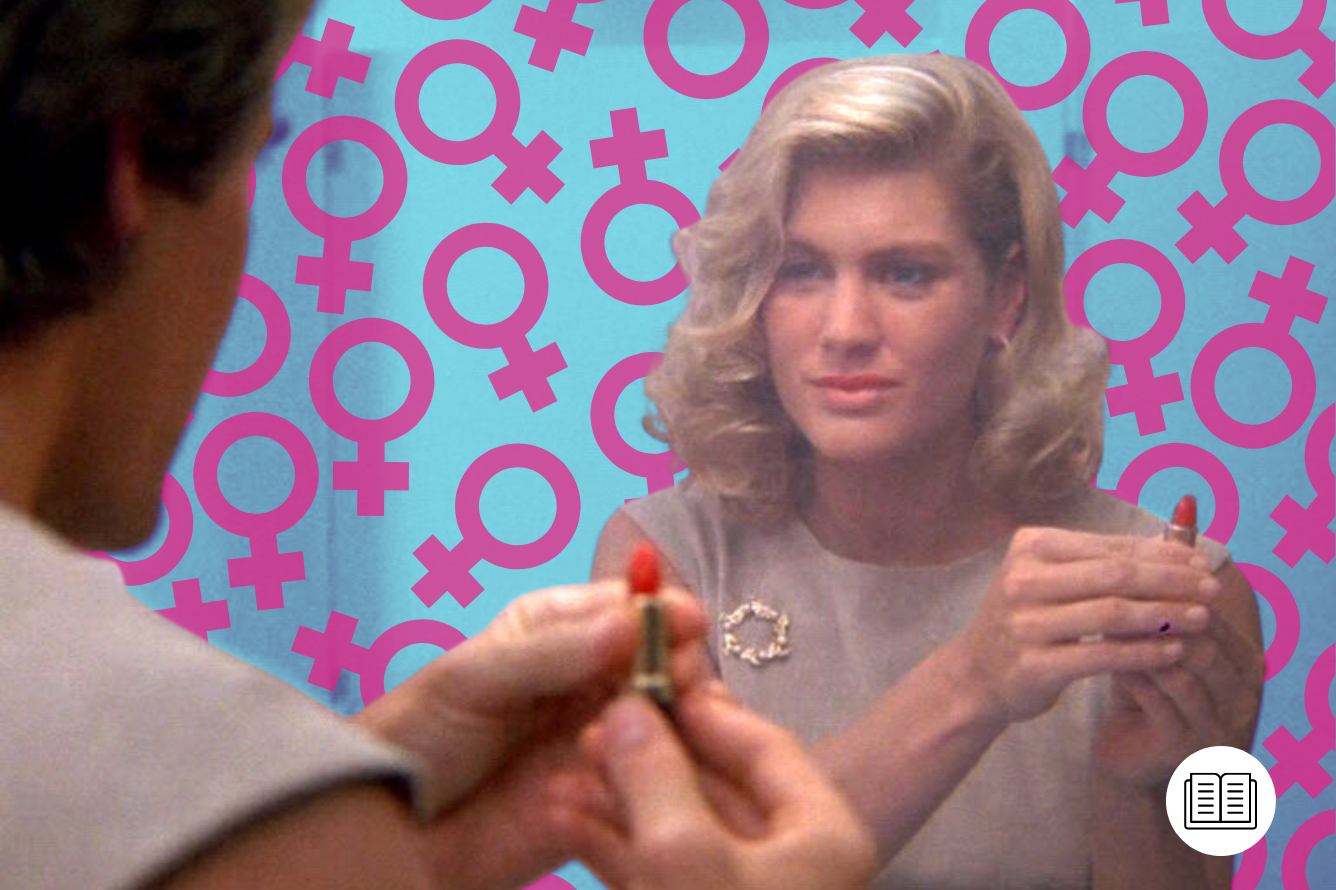
Admiral Al Calavicci (Dean Stockwell)– he’s so much more than wisecracking and surface jokes or flirtation. There’s so much depth to his character. Was that fleshed out early on with an end-to-end journey for him in mind, or did his character evolve through the seasons?
“It was a little bit of both. Dean Stockwell had been on Broadway at five years old and had been a major child movie star. I remember when we wrote the show where Sam had the chance to save Al – ‘The Leap Back’ [S4, Ep1] – he was so good in that. I’ll never forget how beautiful that was. And then in the very, very end, I love the fact that Sam did change history and Al ended up with his beautiful wife with five kids.
“I remember once asking Dean, ‘Do you want us to write more drama for you? Big dramatic moments?’ And he said, ‘I want you to look at me right now. I want you to tell me what you see.’ And I said, ‘Well, your performance, the pain, fear and loss and all that, because you’re such an incredible actor.’ And he said ‘For me to perform that, I have to be it and live it. So don’t do too many.’
“He had that depth of acting talent. He is so good – Dean, wherever you are, I love you. I miss you.”
The episodes that follow later in the seasons involving celebrities – Sam as Elvis, Dr. Ruth, or Lee Harvey Oswald, was that kind of a direction that you always foresaw? It feels like a sea change as the show progressed.
“The stories were designed, for the most part, to be so, so simple in that they were everyday stories. They weren’t change-the-world stories. I think the biggest one was Lee Harvey Oswald [‘Lee Harvey Oswald – October 5, 1957–November 22, 1963: Part 1’ (S5, Ep1) and ‘Lee Harvey Oswald – October 5, 1957–November 22, 1963: Part 2’ (S5, Ep2)], and maybe the one involving Marilyn Monroe [‘Goodbye Norma Jean – April 4, 1960’ (S5, Ep18)] – those were with people that could have had a ripple effect.
“But there were other little kisses with history in the show, but they were very hard to do. They ran into a child version of Donald Trump in a taxi cab, [‘It’s A Wonderful Leap – May 10, 1958’ (S4, Ep18)], then they ran into a little boy who is supposed to be Michael Jackson – Sam teaches him to moonwalk [‘Camikazi Kid – June 6, 1961’ (S1, Ep8)]. The first time I did a kiss with history was ‘Star-Crossed’ [S1, Ep3] – Sam meets up with the woman that left him at the altar and they’re at the Watergate Hotel. That was fun stuff.”
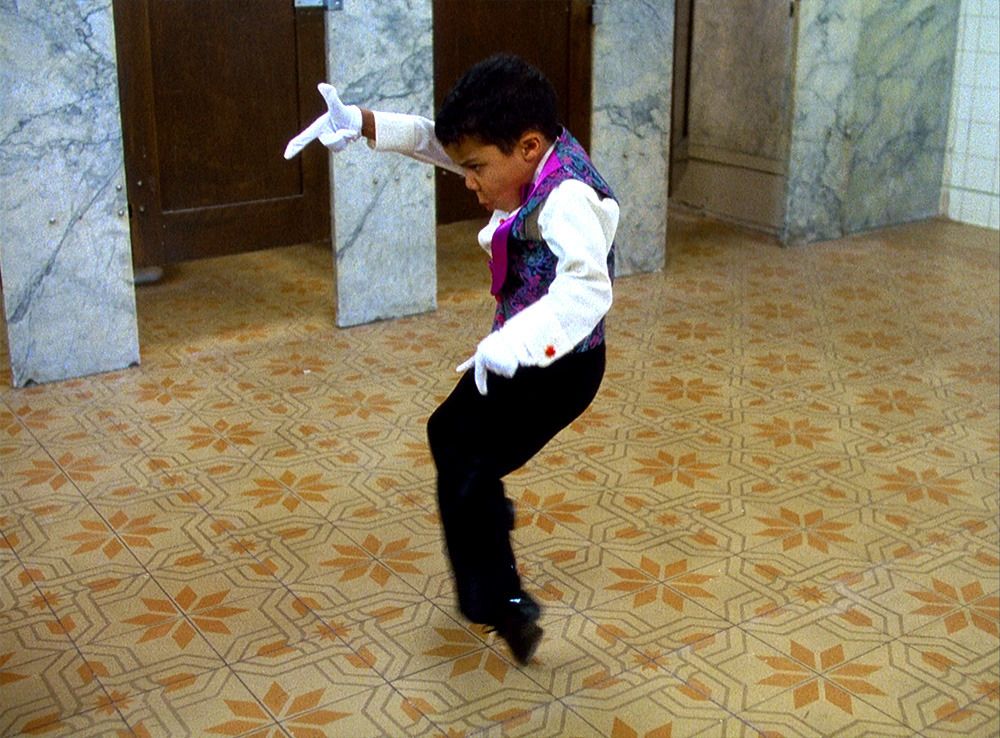
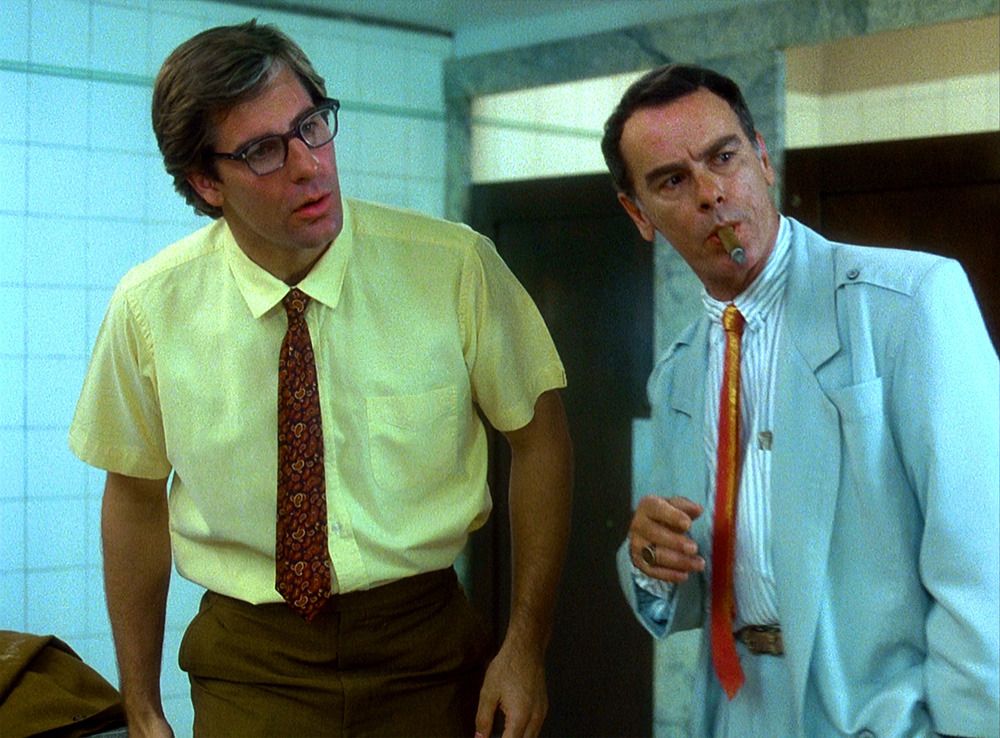
Sam managed to awkwardly kiss lots of ladies in that sense of ‘Oh God, they’re going to kiss me and I’ve got to be this person, what am I supposed to do.’
“We never, ever really discussed what happened to Sam. We didn’t want him to be encumbered by a relationship. But I didn’t get to kiss him. My husband wouldn’t leave the set on the episode I was in!”
Your move into directing – from your TV drama Cora Unashamed back in 2000, to Grey’s Anatomy just last year. Is that something you wanted to do sooner? Were there barriers prohibiting you?
“I was supposed to direct on Quantum Leap four times. Every time it was coming up, something would happen. The only women who directed on the show were two black women – Debi Allen [Fame, Everybody Hate Chris, Jane the Virgin] and the other was a woman named Anita Addison. They each did two shows.
“I said, ‘If I’m not doing this, I want black women.’ There were no other black women. And it was a fight. I tried to get black women directors on the show, but I could never get them past.
Then when I went to do The Net, the studio blocked it. I give huge amounts of credit for executive producing to Shonda Rhimes and what she has been able to do. She did what I thought I was going to be able to do. She’s so talented and I’m such a fan of her and her shows. I’m looking forward to what she’s going to do on Netflix. And it was an honor to do Grey’s Anatomy because I’m a fan of the show and I’m really grateful to have that opportunity.”
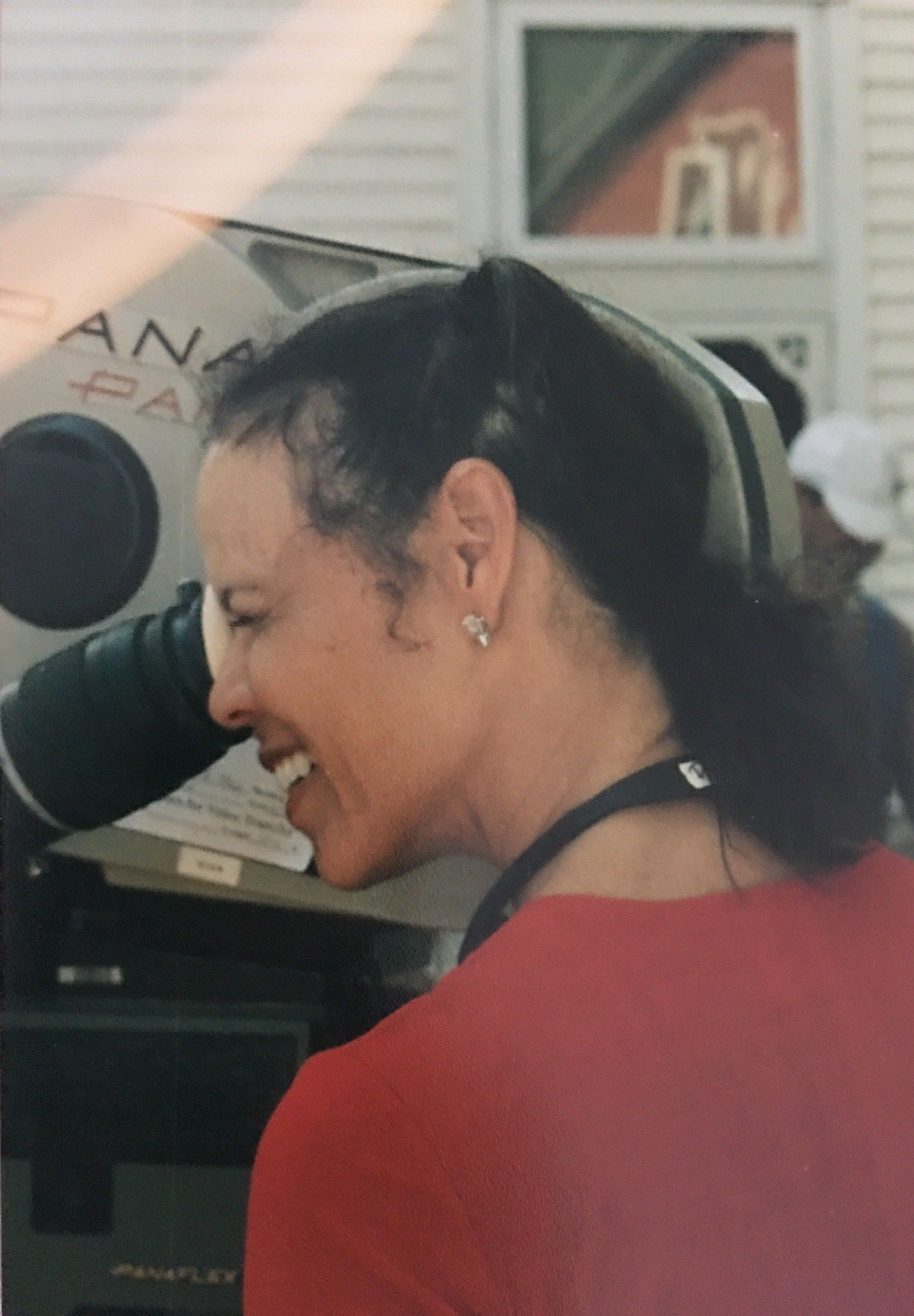
Has there been progress in terms of female directors and filmmakers being given opportunities?
“It’s very hard for women because there aren’t a lot of women executives at the studios. There are more now. And so there is an evolution that’s happening, but it still feels slow. There were shows run by people I gave opportunities to back in the day, but when I said, ‘Hey, I want to direct on your show,’ the response was, ‘Oh, there’s too much machismo. There are too many male hormones around here. They’ll eat you alive.’ And I went, ‘No, they won’t, you’ll protect me. How about if I do my job?’ And that was only last year. But there are more opportunities. There are more women making decisions, but we have to do more because women’s stories and women’s voices are more than half the population – we need to hear those stories. The historic ones as well as the contemporary ones.”
Is there a leap that was your favorite overall? That you feel made you made your mark with?
“‘The Color of Truth’ [S1, Ep7] touched so many people and it opened a dialogue. I remember we got a letter from a teacher who said she brought the VHS in and she played it to her class, up until Jesse [Sam as an aging black chauffeur in ’50s Deep South] goes and sits down at the counter in the restaurant. Then she stopped it and asked the students what they thought happened next. They thought that he just ordered lunch. And then she played the rest and that hostility and the animosity he endures and the fact that he had to get up and leave really incensed these children. They had never heard of or experienced racism. They didn’t want to believe that it really happened. This is how history gets buried and why television is so powerful and important. It opened a conversation that she could not have necessarily had in her classroom, according to her, had she not brought that show in to share with her students.
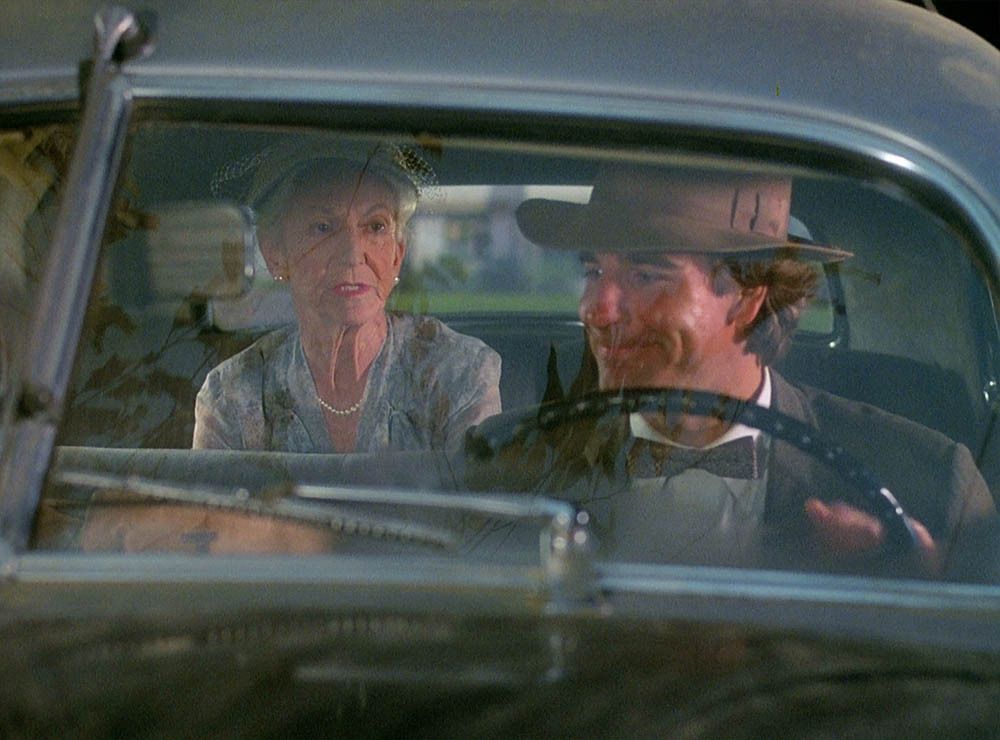
“We had another letter that was very moving, and I want to say it might’ve been ‘The Leap Home’ [S3, Ep1-2]. There was a couple who wrote and said they had a child that was on a cancer ward and every Thursday the whole ward would watch Quantum Leap. Their child was dying and they had kind of given up and it was just time to help that child transition out of this world. They watched the show and she said, ‘We realized we gave up hope. When we watched the show, we realized we didn’t have to give up hope and we wanted to write to you. It’s now six months later and the crisis has passed. The cancer is in remission. Our child is up and going back to school. And we just want to thank you for reminding us that hope has its own power’.”
Its power and poignancy have never diminished. Though the final episode, ‘Mirror Image’ (S5, Ep22), with the caption saying Sam doesn’t get to go home, does leave a sucker punch.
“That was our last fight. Don was going to send him home. And I said, ‘You can’t, you can’t send him home. If you ever, ever, which we’ve not ever been able to get Universal to let us do it, want to do a movie… If you want to keep the story going, you have to leave Sam out there in the hearts of people, leaving people thinking he could leap into their lives.’ And at first, Don said, ‘No, no, we need to bring him home’. And I said, ‘Do not bring him home. Or you will end the show. If you leave the hope out there, that Sam is out there and he could leap into your life and make a difference.’ You keep the show alive in the hearts and minds of the fans. And I think I was right.”
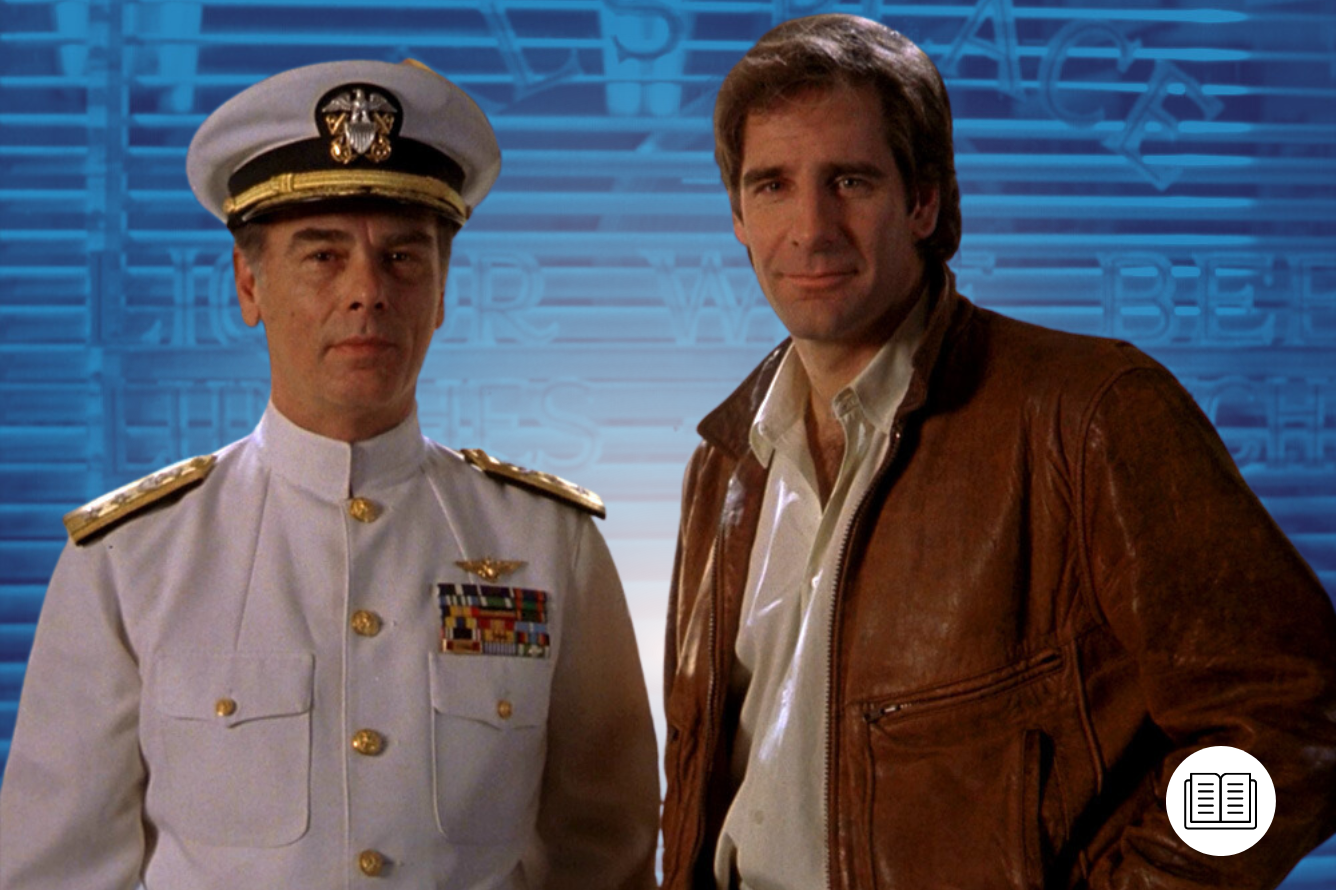
The ending was poetic for me as a viewer, but your point about Sam still being out there – Is there a leap back to the future for Quantum Leap?
“I started writing a project called Time Child about Sammy Jo Fuller. I actually wrote a trilogy in Season 5 where Sam leaped back three times into the same family and the second time he leaped he ended up in bed with this character and conceived a child. Then the third time he leaped in, he met her at 10 years old – a girl named Sammy Jo Fuller. So in my vision, Sammy Jo Fuller grows up. I actually have Al say, ‘Sammy is in the future with me. We’re trying to bring you home.’ That was my set-up way back in 1993, in Season 5, to say someday, Sammy Jo being his daughter might take over….
“This was the ’90s. Women heroes didn’t exist really – other than comic books – Wonder Woman was there, Super Girl was there. But I set it up in the show that Sammy Jo was going to bring him home. Sadly, I have not been able to get Don and the studio to give me the green light for Time Child. It might happen someday.”



Right now, it feels like we need more shows that offer hope. Is there a place for a reboot on streaming platforms?
“Universal keep saying they want to bring it back. They’re not going to give it up to Netflix because they have [US streaming service] Peacock now and still have NBC. I personally think it should be on a full-blown network. The hard part would be that it would have to be recast if there was a female version using my character Sammy Jo Fuller. Or if they just redid the show, it would be interesting in the sense that there was such an innocence about the show. I still believe that there is an audience out there that wants it, that longs for looking at the past through the eyes of somebody in the present. But who would that person be if you did the show now, what are those eyes like?
“We’re living in the time of COVID and suddenly you go back in time. How do you warn people that this is going to happen? How do you warn people about 9/11? How do you warn people about things in the future?
“I mean, one of the beauties of that innocence too, and I thought that was a great gift from Don to the concept, was that Sam’s memory was Swiss cheese – he didn’t remember things and that made it a lot easier, and Al was not allowed to tell him what was happening in the present. There’s a lot of detail woven into the mythology that allowed it to be innocent and in the moment of time travel. You didn’t have to drag the future back with you.”
Do you have an actress in mind to play Sammy Jo in a reboot?
“Oh my gosh, Jennifer Garner. I always felt she would be a great female Sam. She’s an ‘every woman.’ She’s funny. She does great drama. When I think of a female Sam or even Sammy Jo, I think Jennifer – in a heartbeat. She’s so great in Alias. That show just never stopped. You couldn’t take a breath. If I had to go younger, somebody that would have that kind of believable humor that you think could actually rescue you – maybe Jennifer Lawrence. She’s pretty formidable in that sense.”
This article was first published on February 28th, 2021, on the original Companion website.
The cost of your membership has allowed us to mentor new writers and allowed us to reflect the diversity of voices within fandom. None of this is possible without you. Thank you. 🙂











